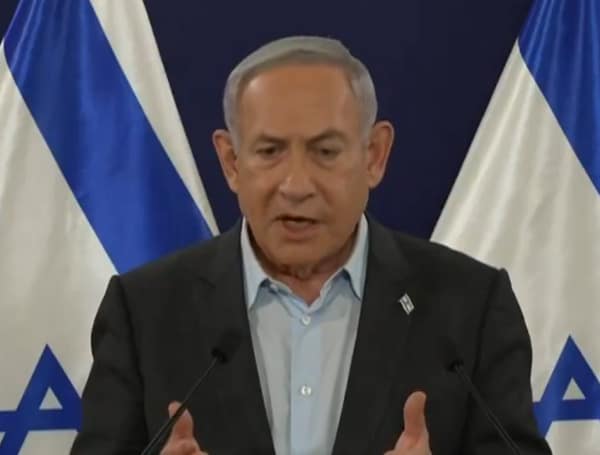In a significant development, Israel’s security cabinet has voted to approve a deal that would bring a pause to the 15-month war in Gaza and secure the release of dozens of hostages held by Hamas militants.
The decision comes after intense negotiations and last-minute hurdles that delayed the vote on Thursday. The deal will now go to the full cabinet for final approval before the ceasefire takes effect.
The agreement, expected to be implemented on Sunday, will see the release of 33 hostages over the next six weeks. In exchange, Israel will release hundreds of Palestinian prisoners.
READ: Trump Lauds Historic Ceasefire Deal Between Israel And Hamas, Hostage Releases Expected
This ceasefire brings hope for much-needed relief to the Gaza Strip, which has been devastated by Israel’s offensive. The relentless conflict has reduced large areas to rubble and displaced an estimated 90% of the 2.3 million population, leaving many facing dire humanitarian conditions and the threat of famine.
The security cabinet was initially scheduled to vote on the deal on Thursday, but Prime Minister Benjamin Netanyahu’s office announced a delay, citing Hamas’s attempts to renegotiate parts of the agreement for further concessions. However, a statement released early Friday morning suggested that the issues had been resolved, paving the way for the approval.
READ: Trump Team Pushes For Gaza Hostage Release, Ceasefire Deal In Israel
The ceasefire agreement comes amidst mounting international pressure to end the protracted conflict, which has resulted in significant casualties and widespread suffering in Gaza. The deal offers a glimmer of hope for a de-escalation of violence and a potential path towards a more lasting resolution to the Israeli-Palestinian conflict.
The final approval from the full cabinet is expected soon, marking a crucial step towards ending the devastating war in Gaza and bringing some measure of relief to the beleaguered region.
Previous Report: Israeli Prime Minister Benjamin Netanyahu announced Thursday evening that a deal has been reached to secure the release of hostages held by Hamas in the Gaza Strip. The agreement is part of a broader negotiation that includes a temporary ceasefire and the release of Palestinian prisoners.
Netanyahu’s statement comes a day after his office reported last-minute obstacles in finalizing the talks, which have been mediated by multiple international parties. (Report below)
The prime minister added that he will convene Israel’s security cabinet on Friday to discuss and approve the agreement, followed by a full government review.
“The State of Israel is committed to achieving all the goals of the war, including the return of all our hostages — both the living and the dead,” Netanyahu’s office told the Times of Israel.
PREVIOUS REPORT: A highly anticipated ceasefire agreement between Israel and Hamas, which promised a six-week pause in fighting and the release of dozens of hostages, remains in limbo as the Israeli Cabinet delays its approval, citing a “last-minute crisis” with Hamas. Prime Minister Benjamin Netanyahu stated Thursday that the militant group was attempting to renegotiate parts of the agreement to gain further concessions.
Meanwhile, Israeli airstrikes have continued, killing dozens of Palestinians in the Gaza Strip, further intensifying the humanitarian crisis.
READ: Trump Lauds Historic Ceasefire Deal Between Israel And Hamas, Hostage Releases Expected
The Israeli Cabinet was expected to vote on the deal Thursday. However, Netanyahu’s office announced the vote would not proceed until Hamas “backs down.”
Netanyahu accused the group of reneging on parts of the agreement, though his office did not elaborate on the specific issues.
While Hamas has publicly affirmed its commitment to the deal, Israel’s internal political dynamics could also be playing a role. Netanyahu’s coalition is under pressure from ultranationalist allies, who demand that any ceasefire agreement includes a commitment to resume military operations after 42 days.
If approved, the ceasefire would bring much-needed relief to Gaza, where widespread destruction has left entire neighborhoods in ruins. The deal includes the release of 33 hostages held by Hamas, including two Americans, and the liberation of Palestinian prisoners in Israeli jails.
READ: CNN’s Scott Jennings Halts Panelist’s Defense Of Biden’s ‘Misinfo’ Statement With One Question
However, the delay in approval has cast doubt over the immediate future of the truce. The continued airstrikes and political maneuvering threaten to derail the fragile agreement, with Prime Minister Netanyahu walking a tightrope between international diplomacy and internal coalition politics.
Netanyahu’s decision to delay the vote reflects a precarious balancing act. His ultranationalist allies demand a hardline stance, while opposition leader Yair Lapid has offered conditional support, potentially propping up Netanyahu’s government in exchange for political leverage.
“It’s not yet clear if Netanyahu’s statements merely reflected jockeying to keep his fractious coalition together or whether the deal was truly at risk,” a senior official noted.
READ: Texas Republicans Attempt To Nix Biden’s Massive Last-Minute Offshore Drilling Ban
The delay has also placed a spotlight on the international mediators who brokered the agreement, including Qatar and the United States.
President-elect Donald Trump has championed the ceasefire as a significant diplomatic achievement, while President Biden scoffed Wednesday at the idea that Trump had anything to do with the deal.
Please make a small donation to the Tampa Free Press to help sustain independent journalism. Your contribution enables us to continue delivering high-quality, local, and national news coverage.
Connect with us: Follow the Tampa Free Press on Facebook and Twitter for breaking news and updates.
Sign up: Subscribe to our free newsletter for a curated selection of top stories delivered straight to your inbox.

